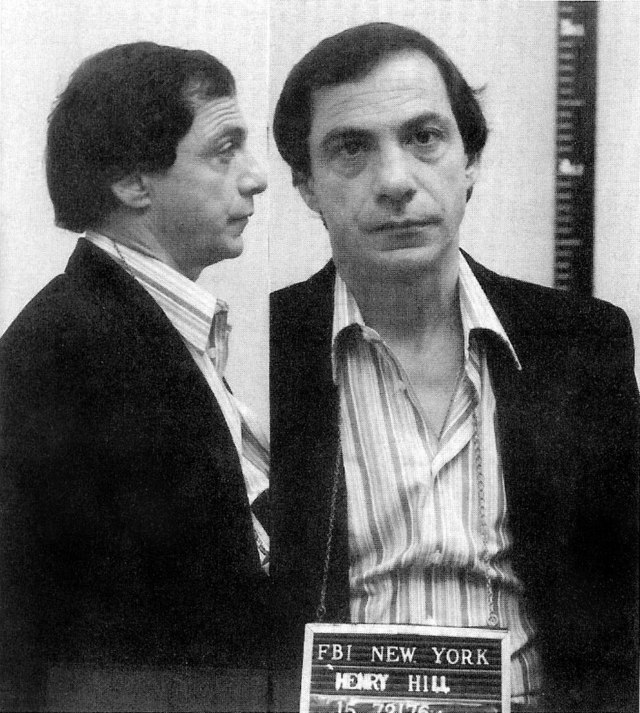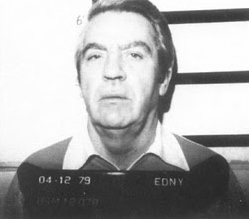Wiseguy: Life in a Mafia Family
by Rui Carrilho
Just finished this book, and what a ride it’s been. Here’s my thoughts.
Ever seen Goodfellas? It’s a 1990 movie by Martin Scorcese who wracked up a ton of well-deserved awards. This book is the basis of that movie. It’s a real life, non-fiction book about Henry Hill, a titular “wise guy” - a mafioso (though the name is never once used in the book itself). It portrays his rise (descent?) into the Lucchese crime family, and subsequent fall from grace, until he is all but forced to go into witness protection. It’s an extremely wild ride, I’ll say that much to start with.

It starts off looking into the early life of Henry Hill, son of some no-name electrician (back then, they made next to no money), with a ton of brothers and sisters, living in a shady street. In said street, there was a pizza place, where some suspiciously rich people were known to loiter and spend some time going in and out. One day, while looking for a job to help the family make ends meet, Henry wanders into that place, and enters the world of self-styled wise guys, to the ire of his dad.
“But mostly he was angry about me hanging around the cabstand. ‘They’re bums!’ he used to scream. ‘You’re gonna get in trouble!’ he’d yell. But I’d just pretend I didn’t know what he was talking about and say that all I was doing was running errands after school instead of running bets, and I’d swear that I was going to school when I hadn’t been near the place in weeks. But he never bought it. He knew what really went on at the cabstand, and every once in a while, usually after he got his load on, I’d have to take a beating. But by then I didn’t care. Everybody has to take a beating sometime.”
As you can tell, the life of an errand boy to the mob often entails skipping school, while getting a lot of cash on the side in tips and thank-you’s. The quote above also lets you know how the book is laid out, with the interviewed Henry Hill giving a lot of first-person narration. In any case, the book sets the scene quickly, introducing the people whom Hill gets to work under. While most can be safely glossed over and forgotten, the most important ones get some nice paragraphs devoted just to them, like so:
Paul Vario was a large man, standing six feet tall and weighing over 240 pounds, and appeared even larger than he was. He had the thick arms and chest of a sumo wrestler and moved in the lumbering manner of a big man who knew that people and events would wait for him. He was impervious to fear, impossible to surprise. If a car backfired or someone called his name, Paul Vario’s head would turn, but slowly. He seemed invulnerable. Deliberate. He exuded the sort of lethargy that sometimes accompanies absolute power.
Nice, isn’t it? The way how it effortlessly correlates these psychological concepts and nails them down to the page, giving you a nice idea of who these people are and how they carry themselves. Pulpy. Powerful.
In any case, the book then moves on to describing how Henry keeps on naturally ingratiating himself to the mob, until eventually, they start letting him in on the schemes they’re running. And boy howdy, do they hustle. Fake money, imported cigarettes, stolen credit cards, gambling, larceny, theft, kidnapping, arson, these guys do it all. And the book never attempts to pretend they had noble motives…
We were always scheming. Everything was a scheme. Tuddy got me a job unloading deliveries at a high-class Italian food store just so I could toss the store’s most expensive items through the windows of Tuddy’s cabs, which he had parked strategically nearby. It wasn’t that Tuddy or Lenny or Paul needed the stuff—the imported olive oil, prosciutto, or tuna fish. The Varies had more than enough money to buy the store a hundred times over. It was just that stuff that was stolen always tasted better than anything bought.
A culture of stealing for the sake of stealing is what moves these hustlers. One early chapter describes how even the higher-ups in the mob makes a point of taking his wife out to dinner on stolen money, taking pride in not earning the meal he’s paying for. That’s just how it worked in those days.
They lived in an environment awash in crime, and those who did not partake were simply viewed as prey. To live otherwise was foolish. Anyone who stood waiting his turn on the American pay line was beneath contempt. Those who did—who followed the rules, were stuck in low-paying jobs, worried about their bills, put tiny amounts away for rainy days, kept their place, and crossed off workdays on their kitchen calendars like prisoners awaiting their release—could only be considered fools. They were the timid, law-abiding, pension-plan creatures neutered by compliance and awaiting their turn to die. To wiseguys, “working guys” were already dead.
In any case, as his parents do not get off his case, Hill signs up for the Army, and does some months of service. By that point though, the hustle culture has sunk so deep in him that he can’t help but find “business” opportunities everywhere around him, suppyling his fellow grunts with all kinds of “swag” (the term is not once defined in the book, but you know what it means)…
“I had it all to myself. I couldn’t believe how lazy everybody around me was. Nobody did anything. I began loan-sharking […]
After he is discharged, he returns to his mob pals, and being a grown man, they know routinely involve him as a partner in every venture of theirs:
Tuddy got me a couple of grand setting some fires in supermarkets and restaurants. He and the owners cleaned up on the insurance money. I had learned how to use Sterno and toilet paper and how to mold it along the beams. You could light that with a match. No problem. But with a gasoline or kerosene fire you can’t strike a match because of the fumes. The usual trick to start them is to place a lighted cigarette in a book of matches, so when the cigarette burns down to the matches the flash will ignite the room. By then you should be long gone.
Henry now makes money hand-over-fist, and soon meets his future wife, Karen. He keeps his “wiseguy” activities a secret from her as long as he can, but when he violently defends her from a perv, she starts grasping his real nature. The book then describes in (a little too much detail) the sorts of crimes he keeps committing to keep making cash for his family. It gets a bit technical at points - I did not really wish to know how they got one over on the primitive electronic security systems they had back then.
Eventually though, as with all “empires” built on wads of stolen money, cracks start to show. After beating up the brother of a CIA office worker, Henry and his friend Jimmy find the lazy eye of justice turned on them, and Henry gets thrown in jail, on a ten-year sentence. His enterprising attitude makes him a model prisoner, and he leaves after four years, where he attempts to resume his life of crime.
Around here however, the world he grew up in is not quite the same. The author clearly started giving this part less attention, as time goes by in a hazy way, with Henry still attempting to get his hustling “businesses” up and running again, but not quite nailing as much cash as he brought in in his prime. He also clearly develops a drug habit, which becomes quite important later on.
See, while Henry is trying his hardest to not mend his ways, his friend Jimmy Burke (who I have somewhat glossed over), who is a total psychopathic daredevil, has been planning the biggest heist of his time, the Lufthansa heist. At least two chapters of the book are devoted to that, and covering it would make for a whole other book (and has, several I think).

He pulls it off, and in the aftermath, Hill, who also had his fair share of involvement in it, starts to get tailed by the feds. And thanks to his drug-addled brain and one clumsy mistress, gets caught. He then has two options: get the book shot at his and spend his whole life behind bars, or become the ultimate wiseguy and cease to exist - which is to say, get into witness protection with a new identity, and testify against all his former partners-in-crime in exchange for immunity.
Given that this book exists, it’s obvious which path he took. Plus, Jimmy the Gent had clearly started getting ready to kill him, so there wasn’t really much choice in the matter. He ratted out all his former friends as enterprisingly as he lived the rest of his life, and till this day lives out the rest of his life in great comfort, with this livelihood and family taken care of by the government who he so fiercely conned and connived from.
From my part, I will say I enjoyed my time with the book. It gave off a pretty clear view of the kind of world these wise guys lived in - one that sees itself far above the common plebs, where fame and fortune comes at you quick and large… until the fortunes turn, at which point you can now expect to spend a big portion of your life behind bars, maybe even the rest of your life.
And that’s if you’re lucky, because it’s also a world filled to the brim with sociopaths. One of the most disturbing chapters of the book focuses on how they treated murder like it was a run-of-the-mill occurrence. The way Jimmy was clearly shown to be a psychopath chilled me to the bones.
There were other chapters focused on how they committed their crimes specifically. I found those of little interest, and wished Pilleggi had spent less time there. I also thought that the book went a little out of its way to enumerate every single thing they stole. I get it, they lived large - I don’t need to know every bit of their lives, every bit of jewelry, food, appliance, furniture, real estate, beverages, toys, clothes, brique-a-braq and so on and so on.
Even so, I would recommend this to anyone with even a passing interest in organized crime, or even just watched the Godfather, Goodfellas, and such bits of media, you owe this book a read. It lets you live out that life vicariously through Hill, with all its bling, violence, power, unsavoriness, and wild twists and turns, all the way till the bitter end. 9/10
And now all that is over, and that’s the hardest part. Today everything is very different. No more action. I have to wait around like everyone else. I’m an average nobody. I get to live the rest of my life like a shnook.